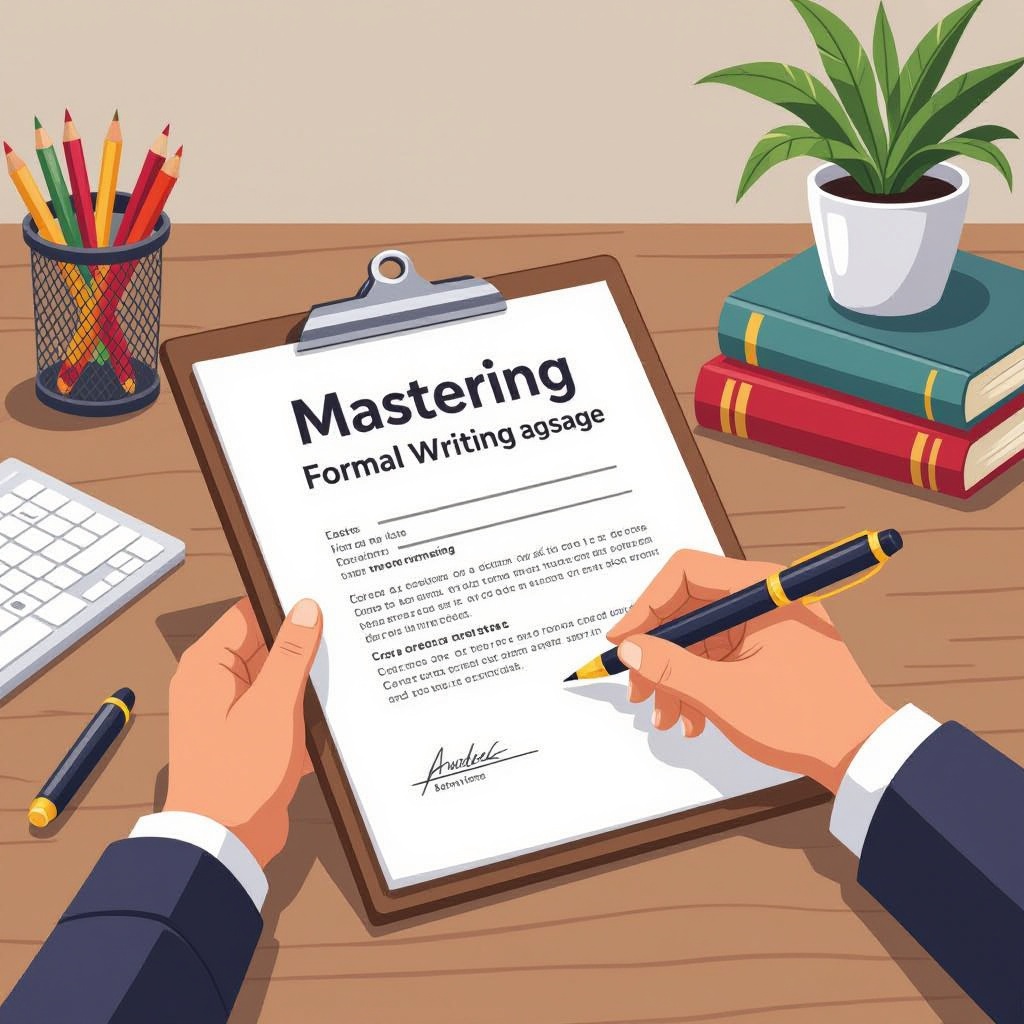Excelling in the IELTS is all about understanding the usual hurdles candidates face. These often include confusion over the test’s structure, informal writing tendencies, and poor time management. By focusing on specific preparation, mastering formal language, and refining vocabulary and structural skills, candidates can avoid these issues and increase their chances of hitting the desired band score.
Key Takeaways
- Grasping the different test structures of IELTS Academic and General Training is vital for focused preparation.
- Keeping a formal writing tone by avoiding contractions and slang is key to scoring higher.
- Practicing regularly under timed conditions sharpens time management and familiarizes candidates with question formats.
- Expanding vocabulary and using synonyms can significantly enhance lexical resource scores.
- Planning task structure carefully and sticking to word limits in writing tasks ensure coherence and relevance.
Understanding the Test Structure for Success
Preparation begins with grasping the difference between the IELTS Academic and General Training modules. These modules cater to varying needs, with Academic focusing on higher education and General Training geared towards work and migration. Key to success is understanding the layout of these tests. A Band Score of 6.5 often opens the door to university admission.
Focusing on Writing Task 1 and Writing Task 2 is crucial, as both play a significant role. Task 1 typically involves describing visual information. Task 2 demands an essay response, emphasizing argumentation and coherence.
By aligning your study strategy with the specific demands of either module, you’ll enhance your potential for a favorable outcome. For detailed information about each section’s expectations, check the British Council’s IELTS page.

Mastering Formal Writing and Language Use
Informal writing can detrimentally affect your IELTS essay scores. To maintain a formal tone, avoid contractions and conversational language. Here is how you can refine your writing to meet academic standards:
- Use complete words instead of contractions, such as “do not” rather than “don’t.”
- Avoid slang and colloquial expressions that reduce the academic tone.
- Choose precise vocabulary that enhances clarity and demonstrates comprehension, which might include terms like “significant” rather than “big” or “presently” instead of “now.”
Engaging with educational resources, such as those from the British Council, can provide valuable guidance on maintaining formal writing standards. Balancing an academic tone with clear expression is crucial for achieving high scores. Employing these strategies ensures your essays align with expectations of formal written English.

Effective Preparation: Practice Makes Perfect
Regular practice is essential to mastering the IELTS. Engaging in timed practice tests helps manage time effectively while understanding diverse question types. Astonishingly, only 76% of candidates choose the more challenging Academic module, making preparation all the more crucial. I strongly suggest these approaches:
- Regularly participate in mock tests to simulate real exam conditions.
- Analyze feedback to discern error patterns and focus areas for improvement.
- Prioritize time management to ensure completion of all sections.
By following these practices, you can refine your skills and increase your confidence. For additional tips, the British Council’s website, known for its valuable resources on IELTS preparation, can provide further guidance. Consider Time management as your strong ally; it offers the capability to address each question without undue stress.

Honing Vocabulary and Paraphrasing Skills
Expanding vocabulary and accurate word choice are key to boosting your IELTS scores. A limited range of words and incorrect usage can pull your score down. To enhance your lexical resource:
- Focus on topic-specific vocabulary relevant to the IELTS themes you’re writing about.
- Use synonyms to avoid repetition and show depth in your language.
Paraphrasing demonstrates your proficiency. It involves rewording sentences without altering their meaning, setting your essay apart. Embrace these strategies with online resources like Merriam-Webster’s Thesaurus or apps for learning synonyms. These tools can significantly improve your word choice confidence.
Crucial Task Structure and Focus
A solid task structure is central to scoring well on the IELTS writing section. Essays may lose points for missing key elements like an introduction or conclusion. Sticking to the minimum word count is essential. Task 1 requires at least 150 words, while Task 2 demands 250. Falling short can negatively impact your score.
Begin by planning your essay’s structure. A clear introduction sets the stage for your argument, while the conclusion wraps it up neatly. In between, ensure body paragraphs are well-organized and address specific points. Each paragraph should have a clear focus, contributing to the essay’s coherence.
Adhering to the word limit can be tricky, particularly when under pressure. One might think only about writing more to reach the count without considering relevance. It’s crucial to stay on topic to demonstrate a comprehensive task response. Avoid straying and ensure your points directly address the question. Keywords in the prompt guide this process. For more detailed tips on structuring essays, you might find resources like OWL at Purdue valuable.
Lastly, maintain your focus while writing. Short, concise sentences help. Don’t let your argument wander. Each sentence should support your thesis, ensuring your essay remains cohesive and relevant.
Grammar and Cohesion: Keys to Clarity
Grammatical mistakes and excessive cohesive devices can disrupt writing’s flow. Lower error rates generally boost band scores, which is vital for IELTS success. Proofreading for grammatical accuracy should be a priority. This allows you to spot and correct any careless slip-ups.
Using diverse linking words will help maintain a logical sequence. For instance:
- Instead of constantly using “and,” consider using “furthermore” or “moreover.”
- Swap “but” with “however” or “on the other hand” to add variety.
A variety of cohesive devices contributes to a more engaging and flowing structure, enhancing clarity. By reducing grammatical inaccuracies and diversifying cohesive tools, your writing becomes more effective and persuasive. For a comprehensive guide on cohesive devices, visit the British Council. This approach could tip the scales in achieving that desired band score.
Sources:
GeeksforGeeks – “Common IELTS Writing Mistakes”
Scribd – “IELTS Test Taker Performance Data 2023-2024”
IELTS – “IELTS Writing Band Scores 5-5 7-5: Grammatical Error Rates, Stakeholder Perceptions and Risk”
IELTS – “IELTS Scores Associated with Early Academic Success for International Students”
The Critical Reader – “Should You Make Up Evidence in Your IELTS Essays?”
IELTSMaterial – “IELTS Average Score Trends”
Abhyaas – “Top Errors to Steer Clear of in IELTS Writing Task 1”
GeeksforGeeks – “Average IELTS Score”


